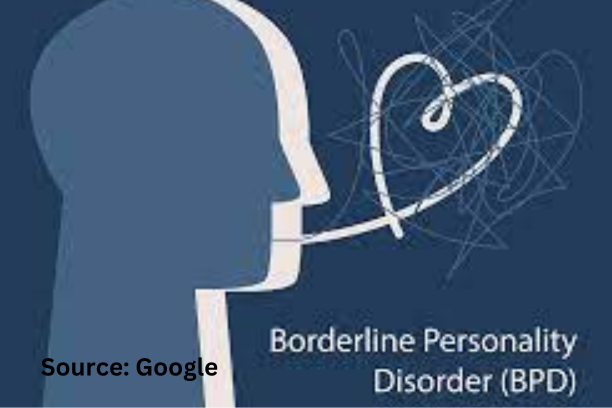One mental condition that significantly impairs a person’s capacity to control their emotions is borderline personality disorder. This loss of emotional control can make someone more impulsive, have an adverse effect on their self-esteem, and damage their relationships with other people.
Borderline Personality Disorder (BPD) is a complex mental health condition characterized by pervasive instability in mood, interpersonal relationships, self-image, and behavior. This disorder often leads to significant distress and impaired functioning in daily life.
Recognizing the Symptoms
Individuals with Borderline Personality Disorder may experience intense mood swings, from euphoria to profound sadness, within short periods. These emotional fluctuations can be challenging to manage, affecting their relationships and overall well-being.
People with borderline personality disorder may experience intense mood swings and feel uncertainty about how they see themselves. Their feelings for others can change quickly, and swing from extreme closeness to extreme dislike. These changing feelings can lead to unstable relationships and emotional pain. People with borderline personality disorder tend to act impulsively and recklessly.
Interpersonal Challenges
People with BPD often struggle with interpersonal relationships. Fear of abandonment is a common theme, leading to frantic efforts to avoid real or perceived abandonment. This fear can strain connections with friends, family, and romantic partners.
Distorted Self-Image
Individuals with BPD may have a distorted and unstable self-image. They may view themselves as fundamentally flawed or see the world in extremes of “good” or “bad.” This unstable self-perception can contribute to impulsive behaviors and decision-making.
Impulsive Behavior
Impulsivity is a hallmark feature of BPD. This can manifest in reckless driving, substance abuse, binge eating, or other risky behaviors. These impulsive acts often occur in response to emotional distress and can lead to negative consequences.
Understanding the Causes
The exact causes of Borderline Personality Disorder are not fully understood. Genetic factors, brain abnormalities, and early life experiences, such as trauma or neglect, may contribute to its development. A combination of these factors likely plays a role.
The exact causes of borderline personality disorder are unknown, like with other mental health conditions. Apart from external variables like past instances of child maltreatment or neglect, borderline personality disorder could also be associated with:
- Genetics. Some studies of twins and families suggest that personality disorders may be inherited or strongly associated with other mental health disorders among family members.
- anomalies in the brain. A few studies have revealed alterations in brain regions related to aggression, impulsivity, and emotion control. Furthermore, dysfunction may occur in the brain chemicals serotonin and other neurotransmitters that assist control mood.
Diagnosis and Assessment
Diagnosing BPD can be challenging due to the overlapping symptoms with other mental health conditions. Mental health professionals typically rely on thorough clinical interviews and assessments to make an accurate diagnosis. Early intervention and treatment are crucial for improving outcomes.
Treatment Options
Treatment for BPD often involves a multifaceted approach, combining psychotherapy, medication, and support from mental health professionals. Dialectical Behavior Therapy (DBT) is a widely used therapeutic approach that focuses on developing skills to manage intense emotions and improve interpersonal relationships.
Many individuals with borderline personality disorder report reduced and less severe symptoms, enhanced functioning, and an overall higher quality of life while receiving evidence-based treatment. It’s critical that patients with borderline personality disorder receive care from a certified mental health practitioner.
After treatment starts, symptoms may not go better right away. People who suffer with borderline personality disorder and those close to them should practise patience, follow the recommended course of treatment, and look for support while undergoing treatment.
While some patients with borderline personality disorder may be able to control their symptoms with outpatient care, others may require intense, frequently inpatient, care to manage severe symptoms.
Coping Strategies
Individuals with BPD and their loved ones can benefit from learning and implementing effective coping strategies. Developing mindfulness, emotional regulation skills, and maintaining a consistent routine can contribute to better emotional stability.
Breaking the Stigma
Despite the challenges associated with Borderline Personality Disorder, breaking the stigma surrounding mental health is essential. Increased awareness, understanding, and empathy can foster a supportive environment for those affected by BPD to seek help without fear of judgment.
Seeking Support
If you or someone you know is struggling with symptoms of Borderline Personality Disorder, seeking professional help is crucial. Mental health professionals can provide guidance, support, and evidence-based interventions to help manage the challenges associated with BPD.
Early adulthood is when borderline personality disorder typically first manifests. Young adulthood appears to be the worst time for the illness, while it may progressively improve with age.
Do not give up if you are diagnosed with borderline personality disorder. With time and treatment, many persons with this disease recover and are able to lead fulfilling lives.
FAQs
Conclusion
In conclusion, BPD is a complex mental health condition that significantly impacts various aspects of an individual’s life. Recognizing the symptoms, understanding the causes, and exploring effective treatment options are essential steps toward improving the quality of life for those affected by BPD. With increased awareness and support, individuals with BPD can lead fulfilling lives and break free from the constraints of this challenging mental health condition.
